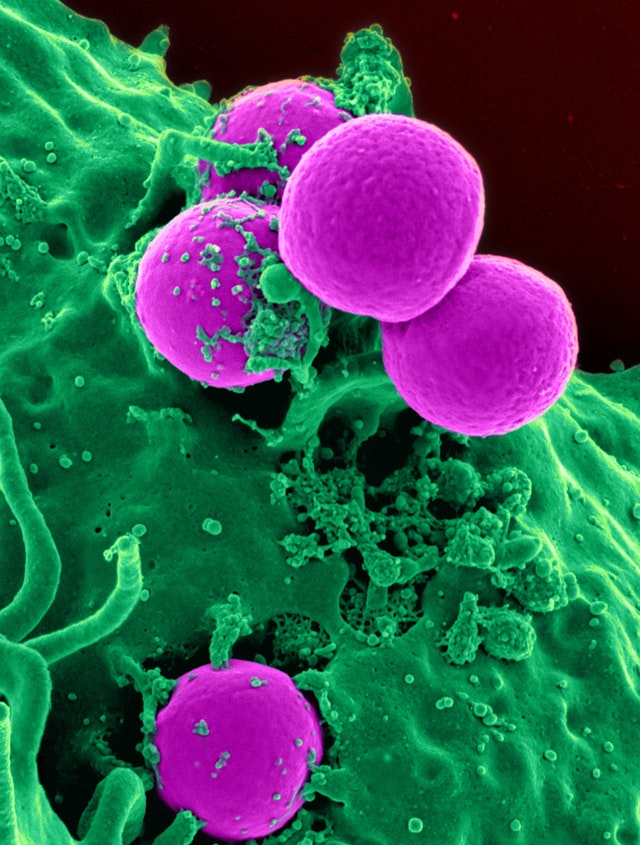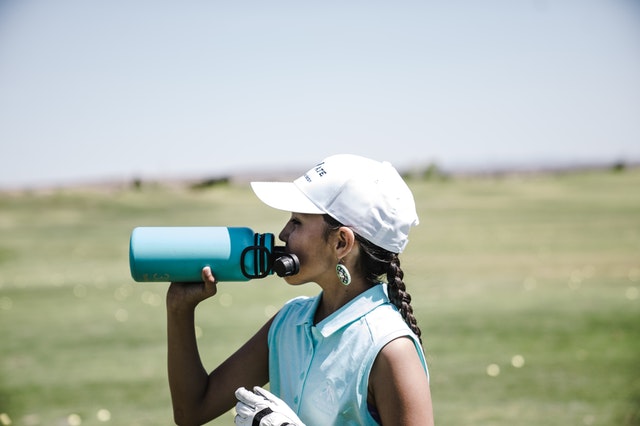Water Therapy: How Water Can Cure Addiction

It was 5 years ago when Earl (not his real name) showed up at my office a week after a workshop we had both attended. I was at the workshop on an invitation to talk about my experiences having worked as a counselor and social worker working with people struggling with drug addiction. Earl was there to get help with his addiction to alcohol. He had been a user for 8 years and had tried various rehabilitation programs with little success.
In his account of the problems he was experiencing, rehab seemed to work, but fallible. Increasingly often, the medication did not help him much to beat withdrawal symptoms. He was particularly concerned about withdrawal symptoms that left him in constant pain even after taking medications prescribed by his therapist. Apart from strong occasional urges to drink, his withdrawal was causing him headaches, extremely sweaty nights, nausea, and constipation.

These symptoms had left him desperate and almost resigning from rehabilitation. Was it worth receiving treatment for addiction when alcohol seemed the only option that could truly ease his suffering? Knowing the signs of dehydration, I immediately recognized the cause of Earl’s problems with recovery. He was simply not drinking enough water as he was losing through sweat and other means.
In retrospect, I have encountered many rehab patients like Earl, who suffer dehydration simply because they think a glass or two of water is enough water to last them a day. The significance of water in the body cannot be overemphasized. This is even truer for people in recovery from drug addiction since their immune functions are comparably weaker than normal.
Table of Contents
- 1 Roles of Water in your Body
- 2 Cell growth
- 3 Medium for cellular interactions
- 4 Carrier
- 5 Thermoregulation
- 6 Lubrication and shock absorption
- 7 Dehydration
- 8 Signs of Dehydration
- 9 Using Water to Treat Addiction
- 10 Beating Symptoms of Withdrawal with Water
- 11 Detoxifying the Body
- 12 Hot Water Versus Cold Water
- 13 Hydrotherapy
- 14 Conclusion
- 15 Author Bio:
- 16 Related Posts
Roles of Water in your Body
Water makes up about 70 percent of the human body. This percentage varies depending on the person’s age and bulkiness. Since that is more than half of what makes us, water is crucial to life, even more than food! To the human body, water serves as a multifunctional component. Those functions include:
Cell growth
Water is a building material in the cell and tissue creation processes. In collaboration with other bodybuilding macronutrients such as protein, water is needed in quantities higher during the growth phase.
Medium for cellular interactions
The solvent nature of water makes it important in the interactions between molecules in your body. With this property, water acts as the bridge between cells and solutes such as amino acids and glucose, as well as a solvent for ionic compounds. This simply means that your body requires water to facilitate the interaction between other macronutrients (carbohydrates, lipids, proteins and so forth) and cells.

Carrier
Naturally, your body needs to clear whatever is left of nutrients after they are used. For this, water takes the role of a carrier – transporting nutrients to cells and later transporting wastes for excretion after use by cells. Moreover, your body requires water to maintain the volume and flow of blood in your vessels. Dehydration, therefore, will hinder proper exchanges between cells, which may result in a buildup of toxins in your blood and become life-threatening.
Thermoregulation
This refers to the action of controlling body temperature. Our bodies function normally at 37°C (98°F). To maintain this temperature in a warm/hot environment, water in the body absorbs and dissipates the heat through sweating. This capacity to absorb heat makes water also critical in environments that are cold.
Lubrication and shock absorption
Your joints need lubricants, which are generally a mixture of water and other viscous molecules. Other bodily components where water is an important element are saliva, mucus secretions in airways and digestive tract, and in the genito-urinary tract. These uses are concerned with how food and fluids are ingested and transported through the body up to the point of excretion.
Dehydration
Like in Earl’s case, dehydration is a potential side effect of withdrawal for about half of the number of people that attempt to recover from alcohol dependence. Dehydration for people recovering from alcohol misuse can present in two ways. The first type, isotonic dehydration, can occur due to profuse diarrhea arising as a withdrawal symptom for the drug. This way, salt in the gastrointestinal tract is lost isotonically, leading to electrolyte imbalance. The result, therefore, is the reduction in the volume of extracellular fluid, that is, the liquid medium surrounding cells.

The second type of dehydration is inadequate water intake accompanied by water loss leading to hypertonic dehydration. For most people, inadequate water intake is due to impairment of their thirst consciousness or simply lack access to water. On the other hand, water loss can be due to osmotic diuresis (that is, increased passing urine; though not because of increased water intake) or as a symptom of diabetes insipidus. Other than these, hypertonic dehydration can also be the result of vomiting, which often results in the loss of hydrochloric acid. This results in a buildup of salt (sodium bicarbonate) in the blood.
Signs of Dehydration
Dehydration due to withdrawal from alcohol can make recovery even more difficult and uncomfortable. Clinically, your dehydrated body will experience signs and symptoms, which without specificity and sensitivity include:
- Dry mucous membranes in the nose and mouth
- Weakness
- Sleepiness or drowsiness
- Headache
- Muscle weakness
- Decreased urine output, and
- Thirst
Signs and symptoms in the event of severe dehydration include:
- Speech incoherence
- Sunken eyes
- Extreme thirst
- Hysteria or unconsciousness
- Low blood pressure
- Lack of sweating
- Little to no urine output
- Fever
- Very dry mucous membranes in the nose and mouth, and
- Rapid heartbeat
If not addressed, severe dehydration will eventually lead to death.
Using Water to Treat Addiction
First, recovering from addiction can yield withdrawal symptoms. As we have discovered, some of those symptoms may involve the loss of water, either isotonically or hypertonically. Symptoms of withdrawal implicated the most in loss of water from the body when recovering are diarrhea, vomiting, and excessive sweating.
Beating Symptoms of Withdrawal with Water
The loss of water and potential electrolyte imbalance due to this loss, therefore, require replacement of water in the body. This is the very basic use of water in the process of recovering from alcohol addiction. For patients experiencing severe dehydration because of a damaged thirst consciousness system or due to frequent bouts of diarrhea and vomiting, 10-12 glasses a day is a recommendable quantity of intake.
An important point to note is that your water intake is not only from the water you drink but also from water in food and water produced naturally by the body. The source with the highest water content is essentially the water we drink. With a capacity ranging from 85% to more than 90%. Food sources have widely varying water content that ranges from 40% to more than 80%. Conversely, our bodies produce water by oxidizing macronutrients. The content of this source is somewhere between 250-350ml for people with lifestyles that involve little physical activity.
Food sources of water and water produced by the body can easily cause you to feel less thirsty. Since water output is likely to exceed water input when you do not drink water directly, this exposes you to the risk of dehydration. You should ensure to drink the recommended amount of water per day to beat symptoms of withdrawal that cause you to lose water.
Detoxifying the Body
Use or misuse of alcohol can cause a buildup of toxins in your body, which may affect your body’s response to those chemicals. For drugs like alcohol, this response is characterized by dependence when the body begins to develop tolerance of the drug. These toxins change the way neurotransmitters in your body work normally by either mimicking or interfering with their functions. By doing so, they trigger symptoms that include headache, nausea, cravings, delirium, vomiting, and tremors among others.
When you consume alcohol, you expose your body to two kinds of toxins. The first kind is toxins that can dissolve in water. The solubility of these toxins means they pass through the body unchanged and can be excreted easily through urine, sweat, or stool. The other kind of toxins isfat-soluble toxins. This kind must undergo a metabolic transformation before they can be eliminated from the body. For this job, the liver has special cells that can break down these substances.
Without enough water, elimination of toxins, either directly through urine and sweat, or through metabolic transformation will be impaired and ineffective. In the case of recovery from alcohol, not drinking enough water means you will spend more time in rehabilitation accompanied by prolonged symptoms of withdrawal.
Hot Water Versus Cold Water
While drinking water at any temperature will help you beat symptoms of withdrawal and detoxify your system, there are differences in the benefits that cold and warm/hot water has over each other. First, water has both latent heat of fusion and latent heat of vaporization. The former refers to heat transfer in a thermodynamic system that causes volume change but the temperature remains constant, while the latter means heat transfer in a system causing temperature change due to change from liquid to vapor.
Water has a higher latent heat of vaporization (340cal/g) than latent heat of fusion (80cal/g). This means hot water is more reactive in a thermodynamic system such as the body than cold water.
Because of this attribute, warm water has the following benefits over cold water:
- Absorbed faster in the body, thus increased hydration
- Breaks down food more easily
- Stimulates digestive enzymes faster thus enhancing digestion
- Enhances detoxification processes in the body
By contrast, drinking cold water has the following effects:
- Induces shrinking of blood vessels, thus making digestion and hydration difficult
- Requires the body to spend energy warming it up to match the body temperature
- Encourages the formation of coagulation of viscous fluids, thus leading to the formation of excess mucus. This makes it easier to fall ill because of decreased immune function.
- Can also cause coagulation of fatty foods, making it harder for the body to digest
Drinking hot/warm water exclusively will help you detoxify your system and clear fat deposits along your digestive tract, which may harbor harmful bacteria. In proper amounts, this will help with constipation and acidity because of increased hydration.
Hydrotherapy
Apart from water intake as a means of beating addiction, Vance Ferrell, an expert in hydrotherapy, the use of warm and cold baths, soaked towels, ice bags, and jets of water to cure illness. These are included in the scope of water therapy and can offer significant benefits to recovering drug users.
With symptoms of alcohol withdrawal in mind, different water therapy strategies exist, which target the body and its various functions differently. For instance, to cure sweating are water therapies that increase heat production and heat elimination. In this option, you should take graduated bath (from cold to hot), cool off with a wet towel, or take a cold air bath.
Another water therapy strategy noted by Ferrell is one that encourages detoxification. Procedures in this therapy target destruction of toxins in the spleen, liver, lymphatics, and thyroid among other tissues by stimulating toxin-destroying cells. Here, you may use a splenic douche, hepatic douche, or a general cold douche.
Other than regulating your body temperature, graduated baths will also help you relieve pain and improve your sleep. Combined with proper water intake, a bath can help you to replenish water lost during the day. Both a warm bath and a warm drink will cause your muscles to relax and calm your nerves. This is particularly critical during the first days of withdrawal from alcohol, when alcohol tremens are imminent or in progress.
Conclusion
Functions and benefits of water mentioned in herein are intended to guide you through recovery and minimize the level of discomfort associated with withdrawal from alcohol. If you are still experiencing discomfort, even after increasing your water intake and applying the various available water therapy options do not worry. Most of that discomfort is your body’s feedback, which will often mean that you are making progress.
In summary of the main ideas, you should increase your water intake to 10-12 glasses a day because of your increased water needs. This should be warm water, which will be more beneficial to your recovery. Finally, you should consider using cold-to-warm bath and water jets to help you increase the pace of your recovery process.
Author Bio:
 Article contributed by Sharon Torres. You can find more about the author at
Article contributed by Sharon Torres. You can find more about the author at
http://sharontorreswriter.blogspot.com/

Leave a comment